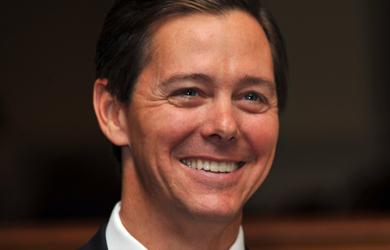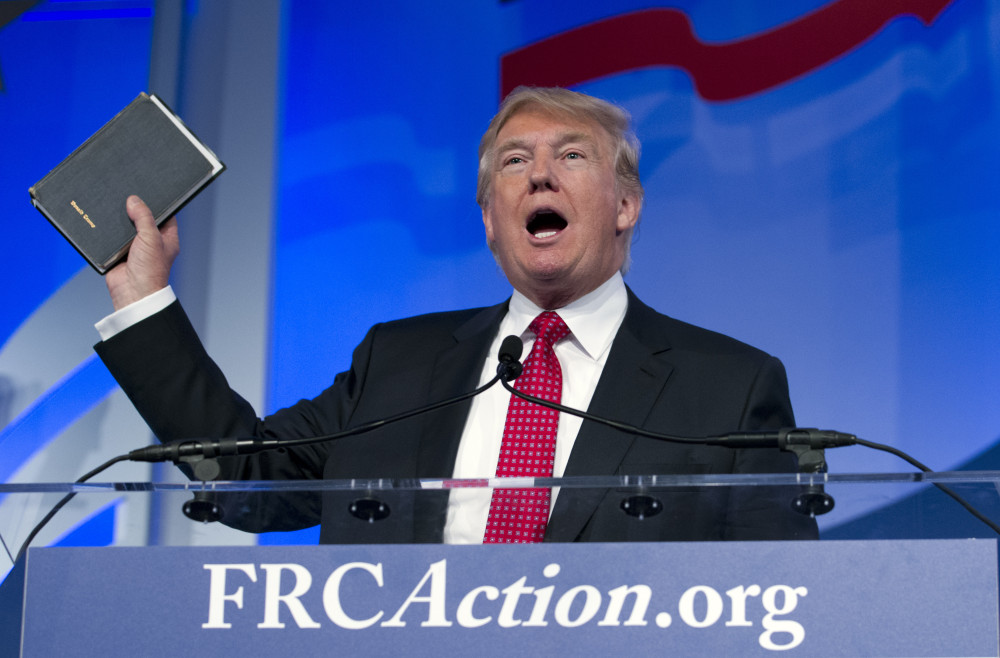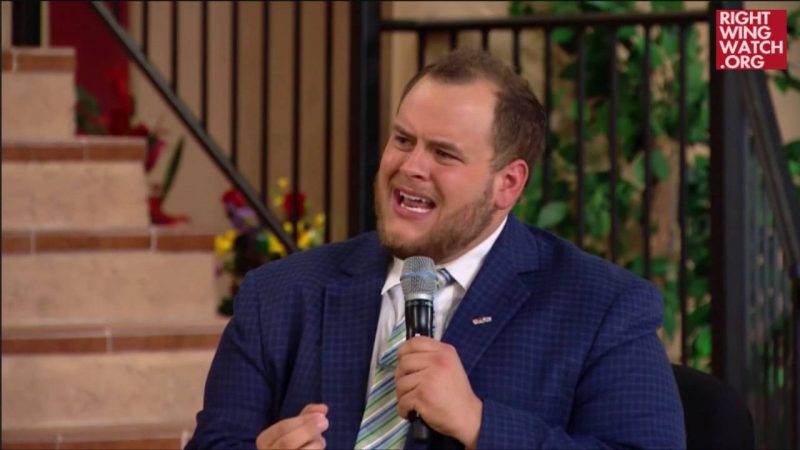While he may not have been their first choice to be the standard-bearer of the Republican Party, Religious Right leaders are starting to fall in line behind Donald Trump, jettisoning their usual messages about backing moral and ideologically pure candidates and instead saying that it is fine to support Trump now that he is the GOP’s presumptive presidential nominee.
As Ralph Reed of the Faith and Freedom Coalition put it in a recent New York Times interview, conservative Christians “love a convert” and “are far more forgiving and extend far more mercy to political figures and others than is understood.”
We aren’t all that surprised that Reed is now praising the former casino mogul who once boasted that he never asks God for forgiveness, as the two actually have very similar backgrounds.
Shortly after he left his post as the head of the Christian Coalition in the late 1990s, Reed became involved in some shady activities with his friend Jack Abramoff, who later became embroiled in a massive corruption scandal related to his bilking of Native American casino clients.
As we wrote in a report on Reed’s Abramoff ties: “Beginning in 1999, Reed, who had once called gambling ‘a cancer on the American body politic,’ was hired by Abramoff on more than one occasion to employ his expertise in mobilizing the right-wing grassroots to help shut down gambling initiatives that threatened the interests of Abramoff’s casino-owning clients.”
In one instance, “Abramoff subcontracted Reed’s firm to generate opposition to attempts to legalize a state-sponsored lottery and video poker in Alabama, an effort that was bankrolled by the Choctaw Tribe in order to eliminate competition to its own casino in neighboring Mississippi.”
Because Reed did not want it to look like gambling interests were funding his Religious Right campaign, the tribe funneled the money through Americans for Tax Reform, the anti-tax group led by Grover Norquist.
According to emails obtained during a Senate investigation into Abramoff’s activities and reported in the media, Reed was well aware of who was paying for this anti-gambling effort. When the information began to surface in the press and the Christian Coalition learned of the source of the $850,000 it had received, it demanded an explanation from Reed who apologized in a letter saying he should have “explained that the contributions came from the Choctaws,” this admitting that he had been fully aware of the source of the funding. But by the time Reed offered his “after-the-fact apology,” the gambling initiative had been defeated and the Christian Coalition had been duped.
In 2000, Trump surreptitiously took out a racially charged advertisement to oppose an Indian casino in New York that could pose competition to his own casinos in Atlantic City:
Under a dark photograph showing hypodermic needles and drug paraphernalia, the newspaper advertisement warned in dire terms that violent criminals were coming to town. “Are these the new neighbors we want?” the paid message asked. “The St. Regis Mohawk Indian record of criminal activity is well documented.”
The ad, part of an advocacy campaign meant to stop a casino from being built in New York’s Catskill region, drew an indignant response from the tribe, which called it a naked appeal to racism. The incendiary ads, which ran in upstate newspapers in February 2000, were the work of the New York Institute for Law and Society, an opaque interest group that described itself as opposed to casino gambling.
It was only later that the man who bankrolled the ads identified himself: Donald J. Trump.
…
The anti-St. Regis ads drew the scrutiny of New York’s lobbying commission, and Mr. Trump acknowledged that he was the New York Institute for Law and Society’s primary sponsor. In a settlement with the state, he and his advisers agreed to pay a fine and run a set of ads apologizing, not for the content of the anti-Mohawk ads, but for evading state disclosure rules related to lobbying and political advocacy.
It turns out that Trump and Reed have a lot in common after all.







